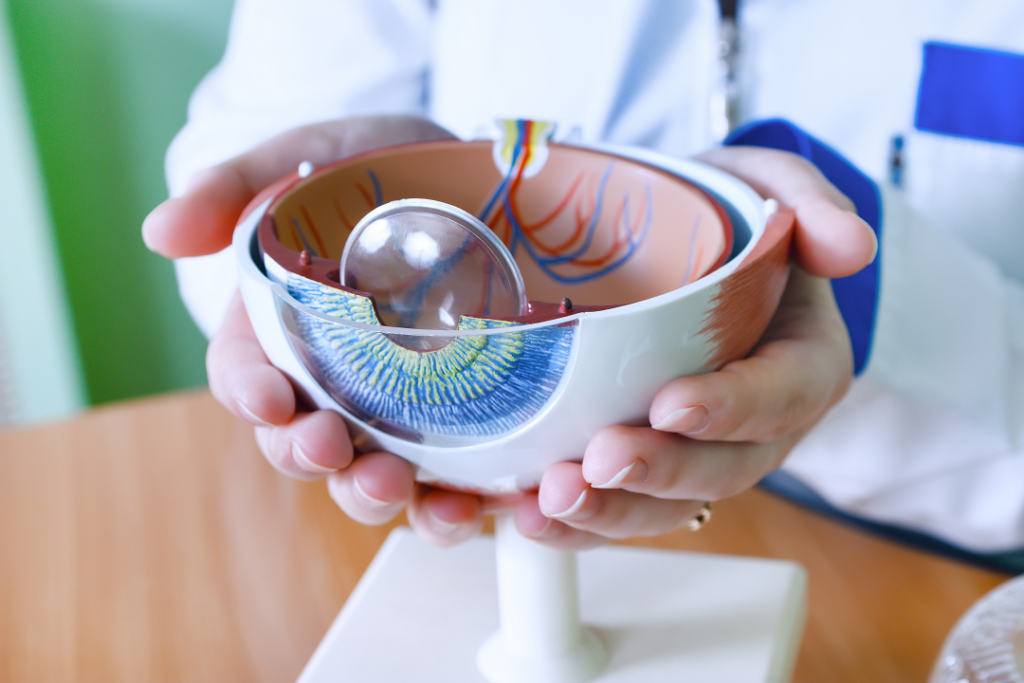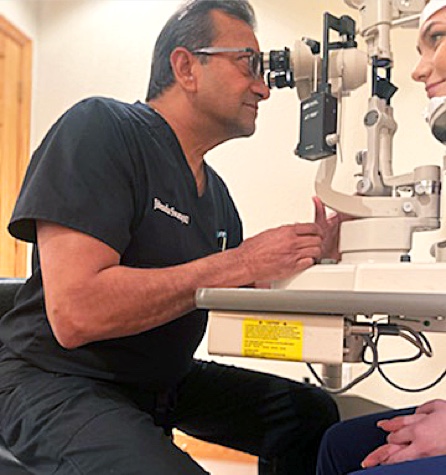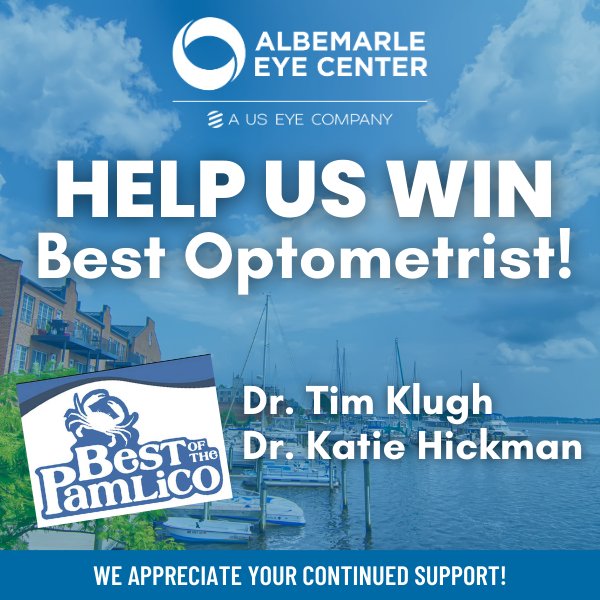Written By: Sean Smolenyak, O.D.
A cataract is a clouding of the natural lens of the eye. It is one of the most common conditions of the eye due to age, though cataracts can also be caused by trauma, certain medications or systemic diseases as well as other ocular surgeries.
The process behind cataract formation involves proteins and fibers within the lens breaking and clumping together, eventually clouding the lens. This leads to less flexibility and transparency along with a thickening of the lens.
The symptoms of cataract formation and growth are numerous but center around varied impacts on vision. These include but are not limited to: cloudy or dimmed vision, increasing night vision issues, sensitivity to light and glare, halos around light sources, fading color perception and the need for brighter light for reading and other activities.
For most patients, the early phases of cataract growth are not particularly bothersome. Often, adjusting prescription glasses can be helpful and delay the need for surgery. Your eyecare provider can advise if this is worth the investment.
Once the cataract impacts how well you can see and function, surgery becomes your best option. The decision for surgery for the most part is not dependent upon a certain level of vision, but rather that the cataract is bothersome enough to warrant surgery. Cataract surgery is one of the most common surgeries performed annually in the United States.
A typical surgery lasts only about ten minutes (expect to be at the surgical center for a few hours though). Through a small incision, often less than 2 mm, a cataract surgeon will remove the natural cloudy lens and replace it with an artificial lens. This artificial lens can be tailored to the patient’s eye and will often reduce the need for glasses afterwards. Advances in artificial lens technology has allowed some patients the option to almost eliminate glasses completely. Based on the measurements taken before surgery and in-depth discussions with the surgeon, the best lens choice can be made for each patient.
Recent improvements in the surgical procedure have centered around the use of lasers to perform some of the steps including making the incisions and aiding in the break-up of the natural lens before final removal. Whether you are a candidate for laser-assisted cataract surgery will be determined during your evaluation with the surgeon.
Vision typically improves rapidly after surgery, though not everyone will see clearly immediately. Often drops are prescribed to prevent infection and accelerate healing. Frequent appointments will allow your eyecare provider to monitor your healing and maximize your visual results, updating any glasses prescription at the appropriate time.
In summary, cataract growth and progression are part of the normal aging process of the eye. With advancements in lens and surgical technologies, cataract surgery is both a safe option and can result in a substantial improvement in visual quality of life.
…..
Take our Cataract Assessment today!
…..
About Albemarle Eye Center
Here at Albemarle Eye Center, our team always goes above and beyond to provide you and your family with the eye care you need.
From laser eye surgery to routine eye care, you can trust that your vision and eye health will be completely taken care of.
With locations in Edenton, Elizabeth City, Kinston, Kitty Hawk, and Washington, you’ll never be too far from high-quality eye care provided by a team of expert ophthalmologists.


















